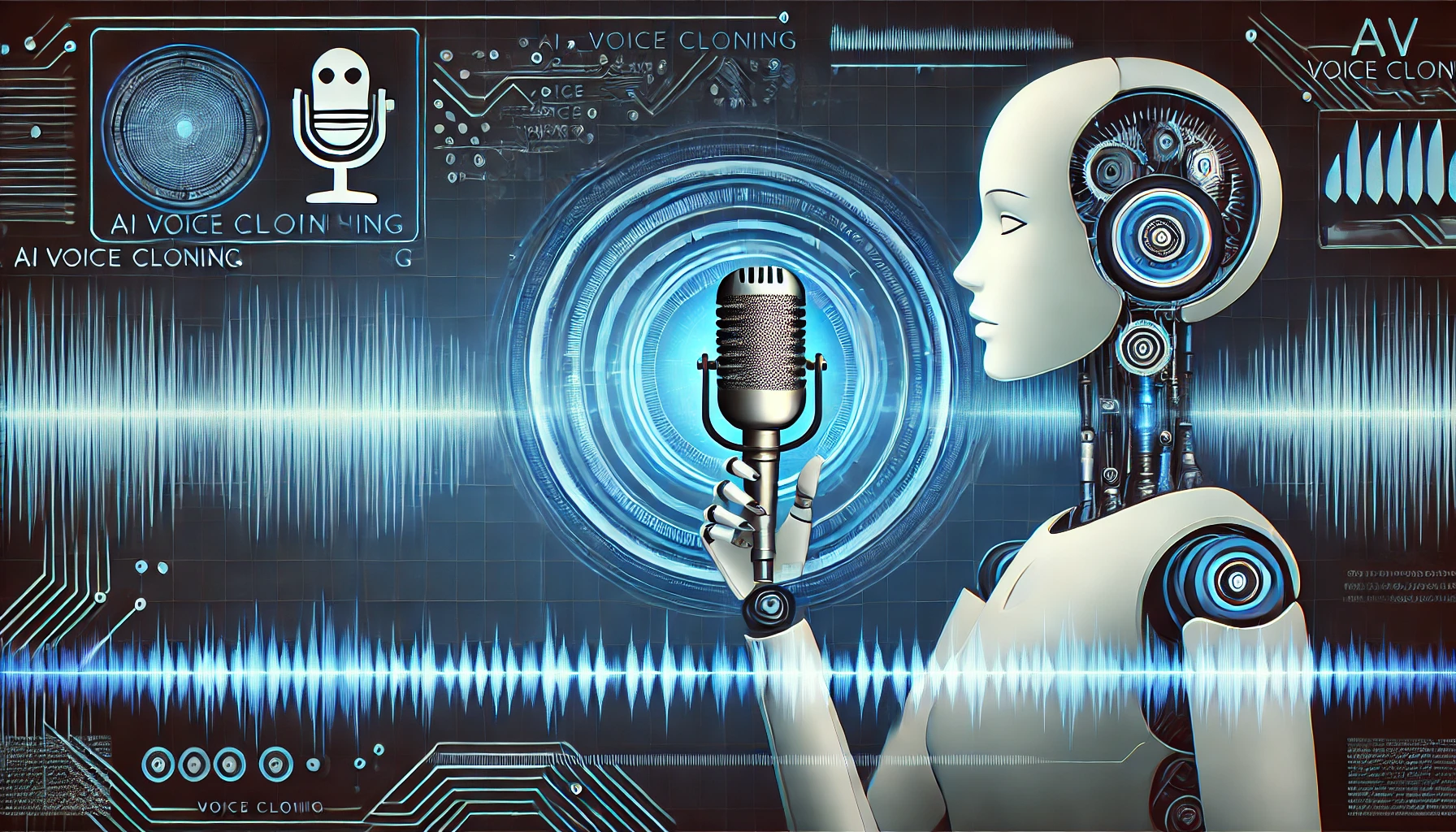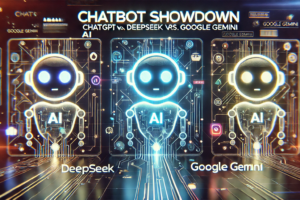ChatGPT Voice Cloning: How Technology is Transforming Voice Synthesis and Applications
ChatGPT Voice Cloning: The evolution of AI voice cloning technologies marks a pivotal advancement in how we interact with digital environments. From ChatGPT voice cloning to the nuances of AI voice synthesis, this transformative technology redefines the boundaries of interaction, offering profound implications for various sectors. This blog delves into the details of voice cloning technologies, including text-to-speech AI, deepfake voice, and real-time voice cloning, uncovering how these innovations shape industries and influence daily interactions.
Understanding AI Voice Cloning
AI voice cloning is an intricate process involving artificial intelligence to replicate a human’s voice so precisely that the digital version is nearly indistinguishable from the original. Popular applications like ChatGPT voice cloning have garnered significant attention, enabling users to generate synthetic speech that mirrors human tones in conversation.
- Core Applications:
- Personalized Digital Assistants: Transforming interactions with AI assistants by providing them with the user’s own voice.
- Media and Entertainment: Offering new dimensions in content creation by generating diverse voiceovers seamlessly.
- Accessibility Enhancements: Empowering individuals who have lost their ability to speak by recreating their voices digitally.
The technology operates by analyzing audio samples of a voice and then employing machine learning to produce a voice model that can articulate new, unrecorded content in the original voice’s tone and style.
The Ethical Landscape of Deepfake Voices
Deepfake voice technology, a more controversial offshoot of voice cloning, involves creating synthetic audio that mimics identifiable voices. Although it shares foundational technology with benign voice cloning, its applications often veer into ethically gray areas, such as impersonation and misinformation.
- Potential Risks Include:
- Impersonation Scams: Using synthetic voices to mimic others for fraudulent purposes.
- Spreading Misinformation: Crafting fake narratives using the voices of trusted figures.
- Privacy Concerns: Cloning voices without consent, leading to significant ethical and legal issues.
Despite potential misuse, this technology also holds promise for legitimate applications, such as in historical documentaries or virtual customer service agents, demonstrating the dual-edged nature of deepfake technologies.
The Role of Text-to-Speech AI in Modern Technology
Text-to-speech AI transforms written material into spoken word, a technology that has seen significant improvements with the advent of advanced AI. This tool is crucial for developing more interactive and accessible communication aids.
- Advantages:
- Enhanced User Engagement: Providing a voice for user interfaces and digital books.
- Accessibility: Offering a voice for those who need communication aids.
- Multilingual Capabilities: Enabling the translation of text to speech in multiple languages.
AI speech generators, closely linked to text-to-speech technologies, are instrumental in applications requiring immediate vocal synthesis, such as real-time customer service interactions.
Innovations in Synthetic Voice Generators
Synthetic voice generators represent a significant leap forward, allowing for the creation of entirely artificial voices that can be used across various media platforms without the traditional need for human voice actors.
- Benefits:
- Cost Reduction: Lowering expenses by reducing reliance on professional voice talents.
- Efficiency: Streamlining content creation processes for media and advertising.
- Scalability: Enabling mass production of personalized voice content.
These generators have democratized voice production, making professional-quality voiceovers accessible to a broader range of content creators and marketers.
Personalizing Experiences with Clone Your Voice AI
The ability to clone your voice AI has opened up new avenues for personalization within digital interactions. This technology allows individuals to create bespoke voice models of their own voices, which can then be used in various applications.
- Use Cases:
- Personalization of User Interfaces: Enhancing the user experience by allowing interfaces to speak in the user’s voice.
- Unique Content Creation: Enabling creators to produce distinctive and personalized audio content.
Exploring Voice Cloning Software
Various voice cloning software platforms enable users to harness the power of voice synthesis for personal or commercial use. These tools range from basic software for casual users to more sophisticated systems designed for professional use.
- Leading Tools Include:
- Descript: Offers voice cloning along with powerful video and audio editing features.
- iSpeech: Provides comprehensive text-to-speech and voice cloning services tailored for developers.
- Respeecher: Specializes in creating high-fidelity voice clones for media and entertainment purposes.
The Future: Real-Time Voice Cloning
Real-time voice cloning technology is poised to revolutionize communication by enabling instantaneous voice synthesis. This could significantly impact fields such as telecommunication, customer service, and entertainment, providing seamless and personalized user interactions.
- Implications:
- Enhanced Communication: Offering real-time translation and personalization in telecommunication.
- Interactive Media: Allowing dynamic voice interactions in gaming and virtual reality.
Navigating Ethical Considerations
While AI voice cloning presents vast opportunities, it also introduces significant ethical considerations that must be addressed to prevent misuse and protect privacy.
- Key Considerations:
- Consent and Privacy: Ensuring all voice cloning is performed with explicit consent.
- Transparency: Users should be aware when they are interacting with synthetic voices.
- Regulation: Developing clear legal frameworks to govern the use and application of voice cloning technologies.
Conclusion
As we delve deeper into the realm of AI voice cloning and its associated technologies like AI voice synthesis and real-time voice cloning, the potential to enhance and personalize our digital interactions grows. However, balancing innovation with ethical responsibility remains paramount. For further exploration of AI applications and their impact, visit Regent Studies.
The continual advancement of these technologies promises to redefine our interaction paradigms, providing more immersive, personalized, and accessible digital experiences. As we move forward, the integration of these voice technologies will likely become more prevalent, making their thoughtful and ethical implementation increasingly important.




